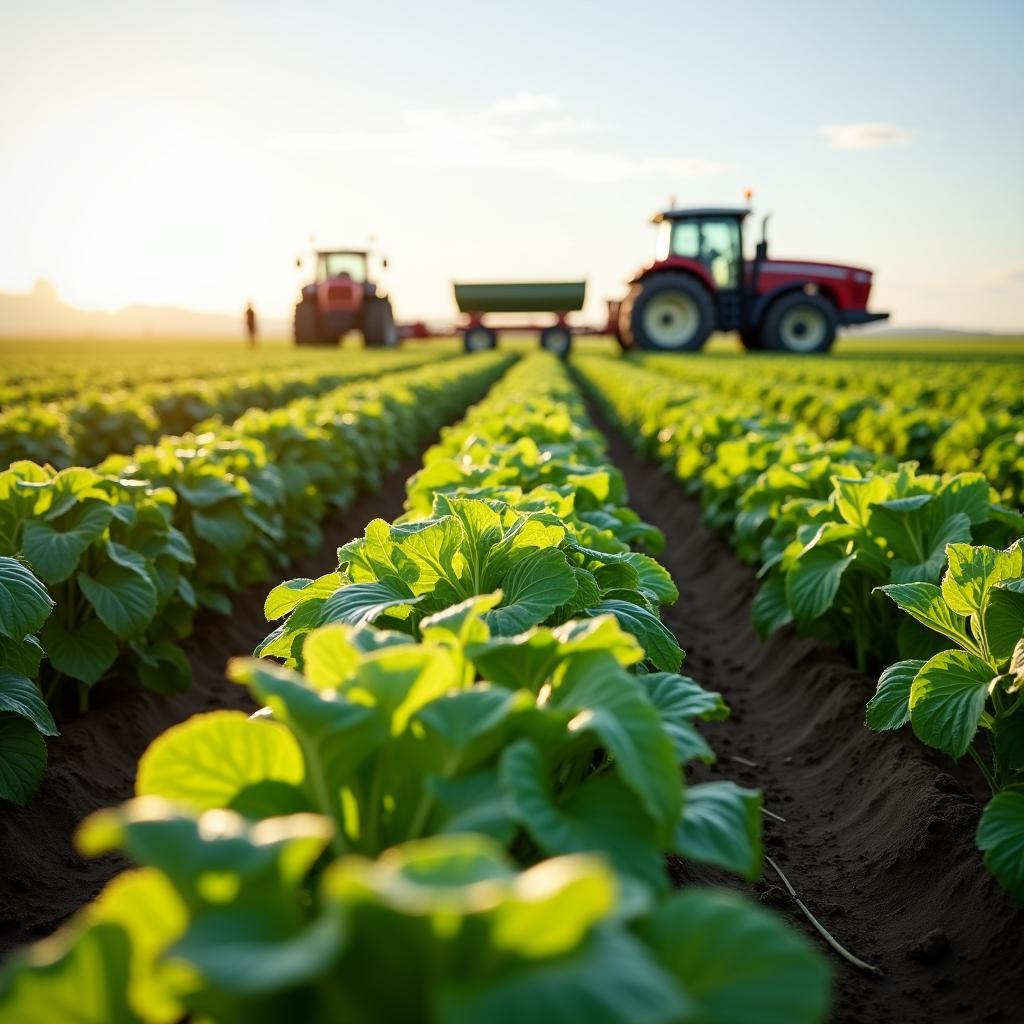The topic of genetically modified (GM) crops frequently appears in IELTS Writing Task 2, particularly in questions about technology, agriculture, and environmental issues. Based on analysis of past IELTS exams, this topic has appeared in various forms over the past five years and remains highly relevant for future tests. Let’s explore one common question type that has appeared in recent IELTS exams.
Table Of Contents
 Genetically modified crops growing in modern agricultural field
Genetically modified crops growing in modern agricultural field
Task Analysis
Some people think that genetically modified crops are the solution to solving world hunger, while others believe they are harmful to human health and the environment. Discuss both views and give your opinion.
This question requires candidates to:
- Discuss advantages and disadvantages of GM crops
- Present balanced arguments for both sides
- Provide a clear personal stance
- Support arguments with relevant examples
Sample Essay 1 (Band 8-9)
In recent years, the benefits and risks of genetically modified crops have become a subject of intense debate. While proponents view GM technology as a breakthrough in addressing global food security, critics raise concerns about its potential negative impacts. In my opinion, while GM crops offer significant advantages, their implementation must be carefully regulated.
Supporters of GM crops present compelling arguments for their adoption. Firstly, these crops are engineered to be more resistant to pests, diseases, and adverse weather conditions, resulting in higher yields and more reliable food production. For instance, drought-resistant corn varieties have helped farmers in water-scarce regions maintain stable harvests. Additionally, GM crops can be enhanced with additional nutrients, addressing malnutrition in developing countries, as demonstrated by golden rice, which contains elevated levels of vitamin A.
However, opponents raise valid concerns about potential risks. The primary argument against GM crops centers on uncertainties regarding long-term health effects on consumers and environmental impact. Critics point to possible allergic reactions and the potential development of antibiotic-resistant bacteria. Furthermore, there are concerns about biodiversity loss when GM crops cross-pollinate with conventional crops.
In my view, while GM crops show promise in addressing food security challenges, their implementation requires careful oversight. A balanced approach involving rigorous scientific testing, transparent labeling, and comprehensive regulatory frameworks can help harness the benefits while minimizing potential risks. The success of GM crop programs in countries like India and Brazil demonstrates that with proper management, this technology can contribute significantly to agricultural productivity and food security.
Sample Essay 2 (Band 6-7)
The use of genetically modified crops is a controversial topic today. Some people think they can help solve world hunger, while others worry about their safety. This essay will discuss both sides and share my opinion.
On the positive side, GM crops can help produce more food. These crops are made to survive better in difficult conditions and can give bigger harvests. For example, farmers can grow special types of corn that don’t die in dry weather. Also, scientists can make crops with more vitamins to help people who don’t get enough nutrition.
However, there are some problems with GM crops. Some people worry that eating these foods might not be safe for our health. They think we need more time to study the effects. Also, should genetically modified crops be encouraged when we don’t know how they might affect nature and other plants?
I think GM crops can be useful but we must be careful. We should test them properly before using them widely. Also, governments should make rules about how to use them safely. If we do this, GM crops can help feed more people without causing problems.
Key Vocabulary
- genetic modification (n) /dʒəˈnetɪk ˌmɒdɪfɪˈkeɪʃən/ – the process of changing the genes of a living thing
- biodiversity (n) /ˌbaɪəʊdaɪˈvɜːsəti/ – the variety of plant and animal life in a particular habitat
- cross-pollination (n) /krɒs pəˌlɪˈneɪʃən/ – transfer of pollen between different species of plants
- antibiotic-resistant (adj) /ˌæntibaɪˌɒtɪk rɪˈzɪstənt/ – not affected by antibiotics
- drought-resistant (adj) /draʊt rɪˈzɪstənt/ – able to survive with very little water
Conclusion
The topic of GM crops remains crucial for IELTS candidates. Future questions might focus on related aspects such as Should governments regulate the use of genetically modified foods? or the economic impact of GM technology. Practice writing essays on these variations to improve your preparation. Feel free to share your practice essays in the comments section for feedback and discussion.


